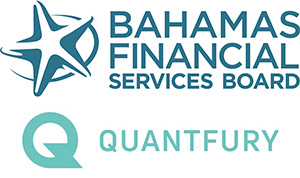Family offices: investing considerations
As the affairs of ultra-high-net-worth individuals (UHNWIs) become more complex, the need for a family office increases. A family office is a private wealth management advisory entity that performs a wide array of functions and services for a family, whether distinct from a family operating business or not. The family office presents a toolkit of solutions under a streamlined and comprehensive umbrella for the management of the economic, financial, social, investment and other needs of the family or UHNWIs.
Unlike a traditional investment management firm, family offices provide an expansive range of services and solutions that extend beyond financial planning and investment management for managing family wealth. Family offices may provide services including staff management, travel management, supervision of personal investments, administrative matters, regulatory reporting and compliance, insurance management, budget planning, tax advice, generational succession planning and philanthropy and charity management.
The primary focus of a family office is to holistically manage the wealth of the family, in an independent, comprehensive and orderly manner. Family offices generally take four approaches to investing:
Approach one: traditional investing
Family offices will, of course, take traditional approaches to investment by investing directly in companies or assets, as opposed to through private equity funds. This investment approach centres on asset allocations to publicly traded instruments, such as equities and bonds. Although we see family office investments trending upwards in other investing approaches, traditional investing continues to be a mainstay in the arsenal of family offices’ investment officers.
Approach two: private equity
Private equity continues to play a major part in the investment strategy for family offices, consisting of a key asset class. Private equity enables family offices to access a wide array of strategic opportunities that yield the possibility of higher rates of returns; for example, mature companies with innovative technologies products or services or monumental corporate transactions backed by private equity funds. According to data from UBS and Campden Research’s The Global Family Office Report 2019, family office investments in private equities attracted a significant mean return from 8.6 per cent to 16 per cent. Also noted in this report was statistical evidence showing a upward trajectory in allocations, recording private equity allocations as high as 20 per cent and growing global family offices’ portfolios (of which between 79 per cent and 88 per cent exceeded performance expectations).
Private equity provides a number of advantages: family offices want to have a greater measure of control over the administration of their assets and seek greater and more involved participation within the investment management and process. Private equity provides family offices with the opportunity to take on a more active role and, as a result, provides an attractive investment option. Family offices are seeking diversification of their asset portfolio and participating in myriad private equity investments permits this.
Approach three: venture capital
Unlike private equity investments that centre on more mature companies, venture capital firms mostly invest in start-ups with high growth potential. Venture capital investing can provide family offices with an equity stake in the business and, as long as the family office is able to exit the company and industry before it peaks, they can reap extraordinary returns at relatively moderate risk. Family offices are increasingly favouring venture capital investments, as they have the potential of yielding much higher profits. At the same time, the family office has the ability to add more value through the family’s operating business, network of connections, expertise and qualifications and mentorship/guidance. There could also be additional benefits and synergies beyond rate of returns, such as the development or introduction of a product or technology that brings synergies to both the family’s operating business and the company that is the subject of the investment.
Approach four: impact investing
Investment returns, although critical, are not the only drivers of family office investment strategy. Family offices are increasingly pursuing investment opportunities that line up with their own personal values and with the family office’s virtues. Family offices are actively seeking investment opportunities that promote environmental, social and governance (ESG) principles and champion more impactful and sustainable investment strategies. ESG investing has become more of a trend as wealth passes from older generations to younger generations. Although younger generations continue to value and seek to ensure wealth preservation, they also share an increasing interest in how the family’s investments align with global concerns. This means they let their values guide their investment decisions and have evinced a strong commitment towards ethical and impactful investments.
Written by Dr Iyandra Smith Bryan TEP, Chief Operating Officer, Quantfury Trading Limited
The content displayed here is subject to our disclaimer. Read more



Connect with us